Waste: The Invisible Enemy of Sustainable Development
Vietnam is entering a new era, a period of deep integration, strong digital transformation and fierce global competition. There, every resource, no matter how small, is valuable, and every decision from the macro level to specific policies must aim for sustainable efficiency.
On that journey, preventing and combating waste is no longer a propaganda slogan, but a vital development imperative, as General Secretary To Lam emphasized in the article “Fighting Waste”: “We are facing a historic opportunity to bring the country into an era of national growth. This is also the time to shape our future. To seize opportunities, push back challenges, strongly increase resources to care for the people, enrich the country in the new revolutionary period, and build a bright future, the work of preventing and combating waste needs to be implemented drastically and synchronously…”.
Waste is not a new phenomenon. But in the current context, when the national budget is still tight, when people's expectations of an honest and constructive state are increasingly clear, all manifestations of waste become bottlenecks, even obstacles to development.
Waste occurs in many aspects: waste of public investment, waste of land resources, waste of time in handling administrative procedures, waste of human resources in the apparatus, waste in education and training, health care, science and technology... And the worrying thing is that many forms of waste are not recorded as direct losses in money, but cause latent, long-term consequences: slow project progress, abandoned works, purchased machinery that is not used, officials who cannot do their jobs but still keep their positions...
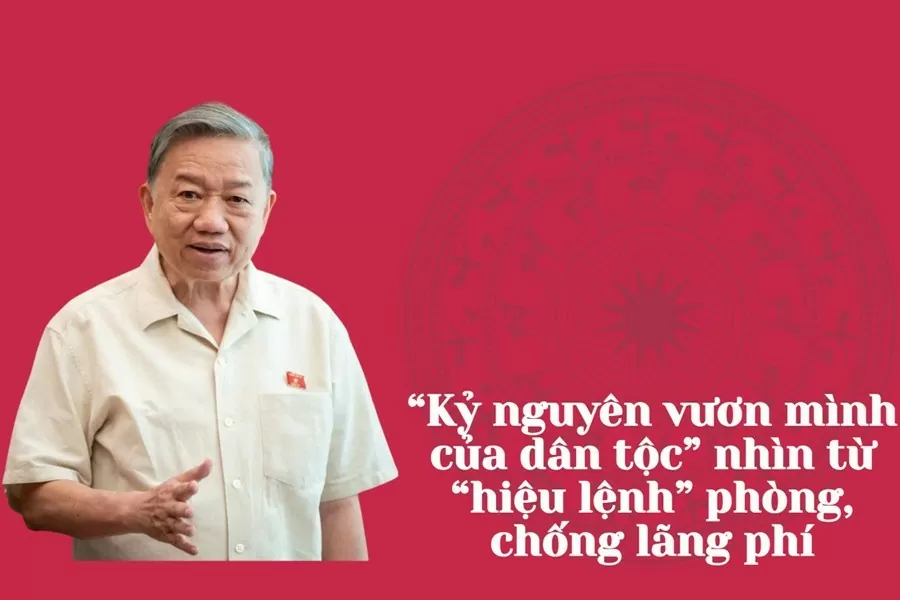 |
| In the article “Fighting against waste”, General Secretary To Lam affirmed: We are facing a historic opportunity to bring the country into an era of national growth... the work of preventing and combating waste needs to be implemented resolutely and synchronously. Photo: Ha Tinh |
The result is not only a waste of the State and people's money, but also an erosion of social trust and a deterioration of national competitiveness. When resources are spread out and investment efficiency is low, the goal of sustainable development remains only theoretical.
A few figures are enough to sound the alarm bell: according to the State Audit Report, each year, tens of thousands of billions of dong are used for the wrong purposes, ineffectively or not disbursed. There are public investment projects with capital increases of thousands of billions of dong, lasting for decades without completion. Public land is abandoned or rented out at low prices, causing serious budget losses.
In the fields of education and health, many localities have built spacious schools but lack teachers and students; many satellite hospital projects are under construction or have been completed and operated for a short time but then closed because many items are still under construction, most of them do not have medical equipment... The most typical example is the project of the second facility of Bach Mai and Viet Duc hospitals in Ha Nam.
At the local level, many programs and projects are being implemented vigorously but lack a basis for evaluating effectiveness, leading to formality, ostentation, and wasteful spending. Models of “new rural areas”, “smart cities”, “digital transformation”, etc., if not implemented systematically, transparently and substantially, also risk becoming places for great waste.
Need for a “waste index” as a real management tool
In a recent directive, General Secretary To Lam emphasized that fighting waste is not only a requirement for economic management but also a political responsibility, public ethics, demonstrating the capacity and awareness of serving the people of each cadre, civil servant and public employee. This is a reminder and also a command for action.
The General Secretary's article "Fighting against waste" also made a specific request: "It is necessary to unify the perception that the fight against waste is a arduous and complicated fight against "internal invaders"; is part of the class struggle; has an equivalent position to fighting corruption and negativity to build our Party strong, "ethical, civilized".
Reality demands that, to effectively combat waste, action must be taken from the root. We cannot just call for responsibility without a strict inspection, supervision and handling mechanism. We cannot just give out slogans of “saving” and “effectiveness” without specific measurement criteria and tools to quantitatively assess the effectiveness of resource use.
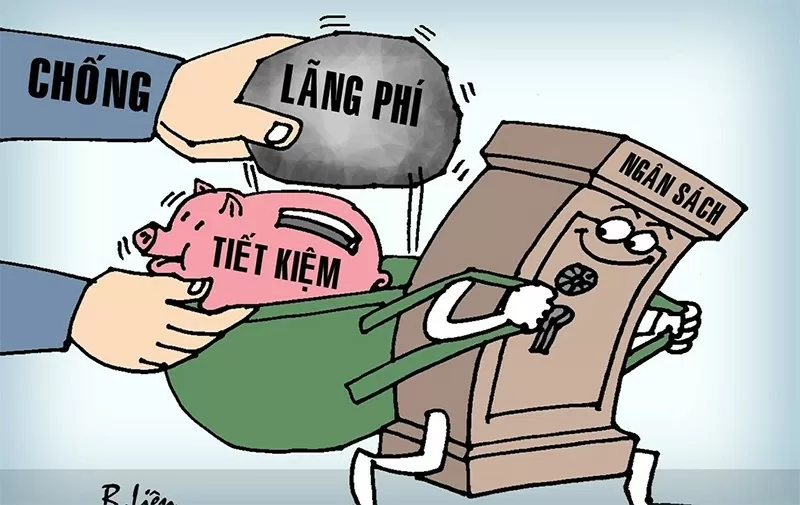 |
| Waste prevention and control: Development imperative in the new era. Illustration photo |
The Party leader has suggested specific solutions to make the fight against waste more practical and effective, such as: Strongly innovating the work of building, perfecting and enforcing laws, considering this an important factor in preventing and combating waste. Regularly evaluating the effectiveness and quality of policies after promulgation to promptly adjust inadequacies and conflicts, minimizing loss and waste of resources.
In particular, the General Secretary requested the need to replicate typical effective investment and project examples, namely: Summarizing and replicating the experience of implementing the 500kV line 3 project Quang Trach (Quang Binh) - Pho Noi (Hung Yen) to shorten the implementation time of key national public investment projects, highways, key inter-regional projects, and projects with spillover effects.
It is time for Vietnam to develop and publish a system of “waste indexes” for each ministry, sector and locality, as part of the system for evaluating the effectiveness of public administration. This index should reflect aspects such as: the rate of public investment disbursement, the efficiency of public land use, the level of overlap between target programs, the rate of public asset use, the efficiency of regular expenditure, the number of administrative documents generated, etc.
Periodically publishing this index will be a way to promote accountability, create pressure from public opinion, and at the same time become a tool for the Government to accurately assess the use of resources and promptly adjust policies.
Moreover, we must consider that anti-waste is not a big and distant task but must start from the smallest things. It is simply turning off unnecessary lights in the office, turning off the air conditioner when not in the office..., or a little bigger is not organizing formal conferences and seminars; reviewing unnecessary expenses; using public vehicles for the right purposes; digitizing documents to reduce paperwork costs...
Ministries, sectors and localities need to establish an effective internal monitoring system, delegating power to leaders but with high accountability. The auditing and inspection apparatus needs to operate more strongly, more independently, and especially more transparently. Handling cases of waste must be as strict as fighting corruption because in essence these are two sides of the same problem: loss of national resources.
Anti-waste, in essence, is effective management. Every penny spent must create value, every project implemented must have specific benefits, every policy issued must be feasible and measurable. We cannot let the situation of “poor spending”, “sparse investment”, “following trends” continue in a period when every country is racing to optimize resources.
To rise up in the new era, Vietnam cannot let waste hold it back. It is time for each locality, each industry, each official to consider fighting waste as a personal responsibility, a professional honor, and an imperative for development that cannot be delayed.
On April 22, 2025, Deputy Prime Minister Nguyen Hoa Binh signed Decision No. 806/QD-TTg promulgating the National Strategy on Waste Prevention and Control to 2035. The Decision clearly states that the general goal is to prevent and repel waste, contribute to the effective management and use of the country's resources, mobilize the people's strength, bring the country into a new era, an era of growth, an era of development, wealth and prosperity; maintain political stability and socio-economic development. The specific objectives are to overcome limitations and shortcomings in policies and laws; to strengthen law enforcement in socio-economic fields, especially those prone to waste. The Decision also sets out 8 groups of tasks and solutions to implement the objectives set out in the Strategy. |
Source: https://congthuong.vn/phong-chong-lang-phi-menh-lenh-phat-trien-trong-ky-nguyen-moi-384530.html



![[Photo] Magical moment of double five-colored clouds on Ba Den mountain on the day of the Buddha's relic procession](https://vphoto.vietnam.vn/thumb/1200x675/vietnam/resource/IMAGE/2025/5/9/7a710556965c413397f9e38ac9708d2f)





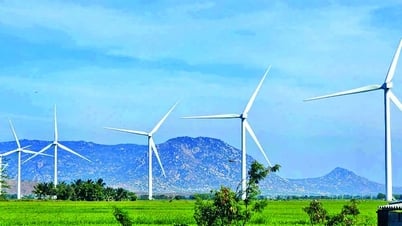

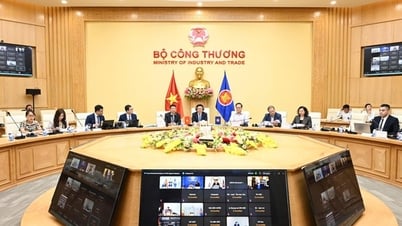

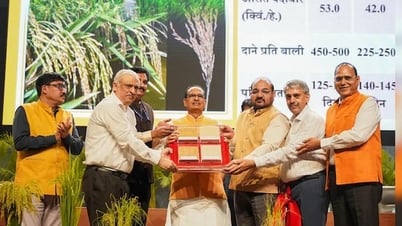







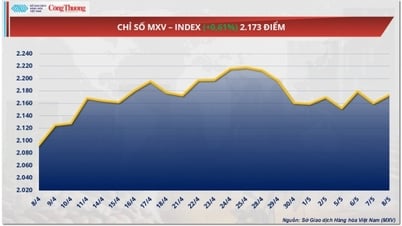



![[Photo] General Secretary To Lam begins official visit to Russia and attends the 80th Anniversary of Victory over Fascism](https://vphoto.vietnam.vn/thumb/1200x675/vietnam/resource/IMAGE/2025/5/8/5d2566d7f67d4a1e9b88bc677831ec9d)











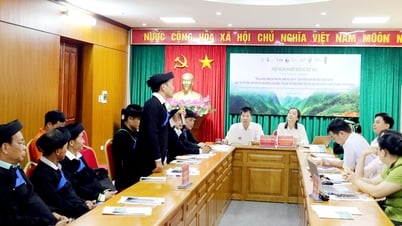































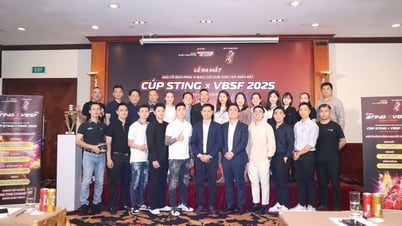

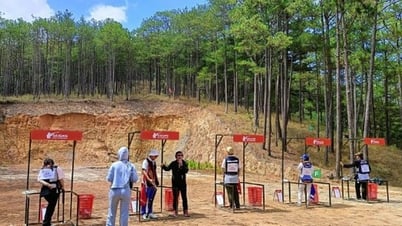
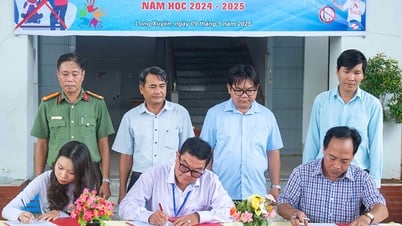

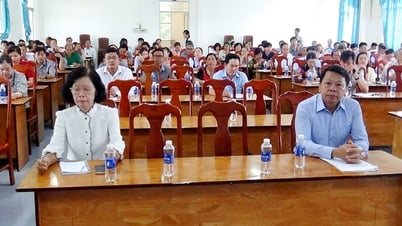


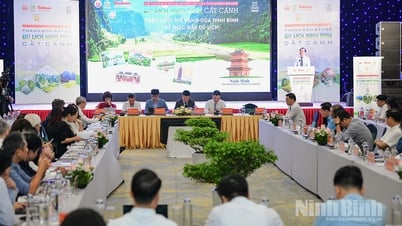

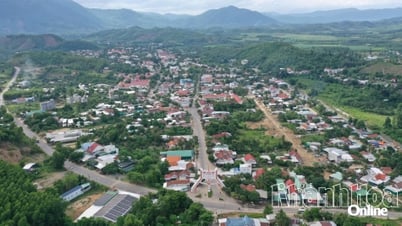











Comment (0)